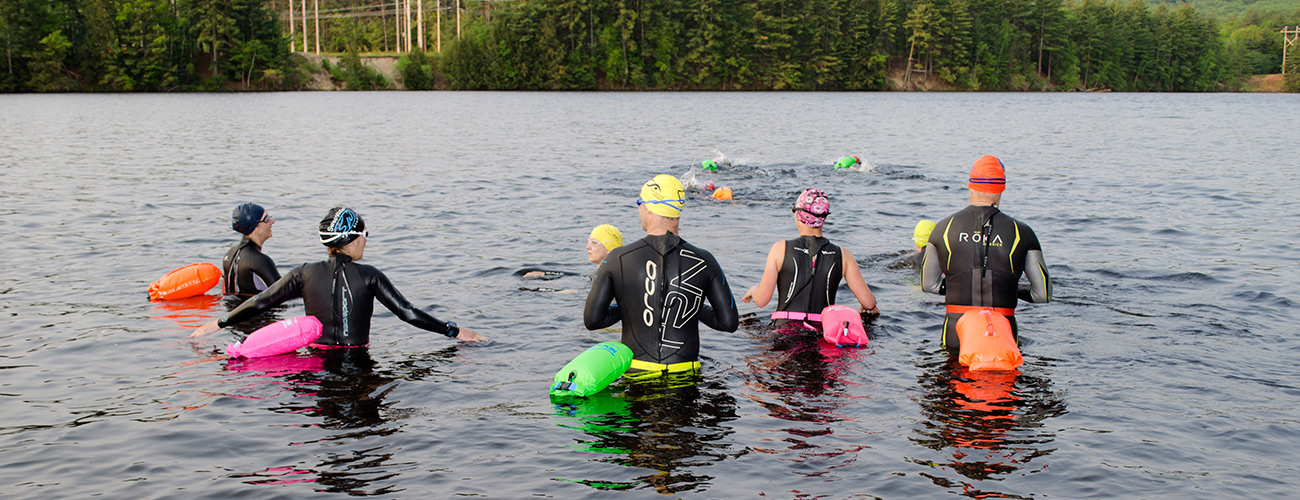
Swimming is an excellent, low-impact, whole-body workout, and swimming “in the wild” is a great way to enjoy nature. However, like many outdoor sports, open water swimming is not without risks. By following a few simple guidelines these risks can be minimized:
- Learn How to Swim and Teach Your Children How to Swim
Drowning is one of the most common causes of accidental death in children, so being able to swim is an essential life-saving skill. Sign up for lessons at your local YMCA or health clubs and learn about U.S. Masters Swimming's Learn to Swim initiatives. - Find a Swim Friend
Don't swim alone. Find a friend or group of like-minded enthusiasts to swim with, and regroup often. Always remember that even a strong swimmer may not be a competent lifeguard, so don't become complacent even in a group. Arrange for canoe or kayak support whenever possible. - Check the Conditions
Before heading out on a swim in the ocean or a lake, check the forecast. Is a storm on the horizon? Wind can create waves and chop that can make swimming difficult. Never swim in a lightning storm. A nearby lightning strike could easily kill you. If you see lightning or hear thunder, exit the water and take shelter in a safe place. Know how to identify and avoid rip currents, and if caught in one, don't fight it. Swim parallel to the shore until out of the current. - Know the Temperature
Open water temperatures are often cold. Sudden immersion into water that is 70°F or less can cause cold shock, which is the body's reaction to a sudden reduction in temperature. It begins with uncontrollable gasping for breath, dangerous loss of manual dexterity, and physical weakness (if this happens to you try to remain calm and force yourself to breathe slowly). These are all factors that can lead to drowning. Experienced open water swimmers often acclimate themselves to cold water through gradual exposure. New swimmers should wear a neoprene wetsuit, which provides buoyancy and warmth. If water temperatures exceed 80°F wetsuits should not be worn, as they can cause overheating. - Don't Swim Impaired
Alcohol or drugs (recreational, and sometimes prescription) and swimming do not mix. These substances impede judgement, impair senses, slow reaction time, lessen endurance and reduce inhibitions, which can result in risky behavior and dangerous circumstances. - Stay Alert
Be aware of your surroundings. Watch out for other users in the water such as boaters, paddle boarders, jet skis etc. Lift your head up to sight every 10 strokes or so to make sure you aren't swimming towards something potentially dangerous. You can be severely injured if you swim head first into a rock, dock or raft. - Be Visible
Wear a brightly colored swim cap and swim with a buoy.* Specially designed swim buoys are produced in florescent colors which make you easier to be seen by other users and from the shore.
| * New Wave Swim Buoy is supporting the Glen Lake Swim and is offering swimmers a discount on this product, and other items in their on-line store. Use the promo code "SwimGlenLakeBuoy" at checkout for a 10% discount on swim buoys, googles, paddles, caps, towels, visors, and more. |
























